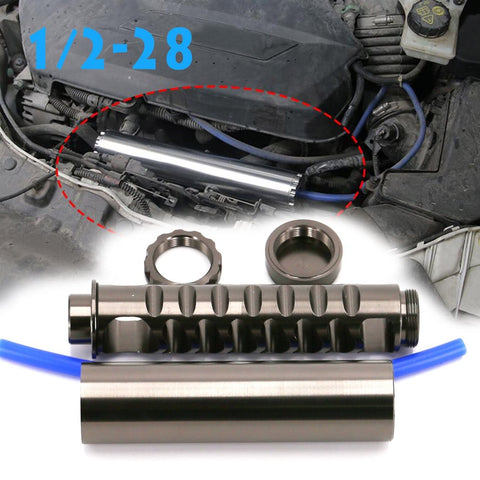How Oil Filter Suppressor Work and Why Important
Fuel filters are a critical component of any combustion engine, including those found in cars, trucks, boats, and other vehicles. They are designed to remove impurities from the fuel, ensuring that the engine receives clean fuel that is free from contaminants. In this blog post, we'll take a closer look at fuel filters, how they work, and why they are so important.
What is a Fuel Filter?
oil filter suppressor
A fuel filter is a small component that is installed in the fuel line between the fuel tank and the engine. It is designed to remove contaminants such as dirt, rust, and debris that may be present in the fuel. 1/2 28" Fuel filters are available in different types and configurations depending on the specific application, but they all serve the same basic purpose of keeping the fuel clean and free from contaminants.
How Do Fuel Filters Work?
1/2 28" Fuel filters work by using a fine mesh or a pleated paper element to trap contaminants in the fuel as it flows through the filter. As the fuel passes through the filter, any impurities or debris are caught by the filter and prevented from entering the engine. Over time, the filter becomes clogged with debris and must be replaced to ensure that the engine continues to receive clean fuel.
Why Are Fuel Filters Important?
Fuel filters are a critical component of any combustion engine because they help to ensure that the engine runs smoothly and efficiently. When the fuel is contaminated, it can cause a range of problems, including reduced fuel economy, poor engine performance, and increased emissions. In extreme cases, dirty fuel can cause serious engine damage, resulting in costly repairs.
Replacing the fuel filter regularly is essential to maintaining the health and performance of your engine. The frequency of replacement will depend on several factors, including the type of vehicle, the quality of the fuel, and the driving conditions. As a general rule, it is recommended to replace the fuel filter every 10,000 to 15,000 miles or as specified in the vehicle owner's manual.
Conclusion
In summary, oil filter suppressor play a vital role in keeping the fuel clean and free from contaminants, ensuring that the engine runs smoothly and efficiently. Regularly replacing the fuel filter is essential to maintaining the health and performance of your engine, and can help to prevent costly repairs down the line. If you're experiencing poor engine performance, reduced fuel economy, or other issues, it may be time to replace your fuel filter. Consult your vehicle owner's manual or speak with a qualified mechanic to determine the appropriate replacement interval for your specific vehicle.
